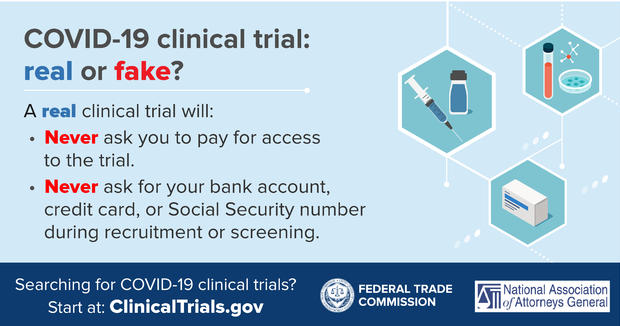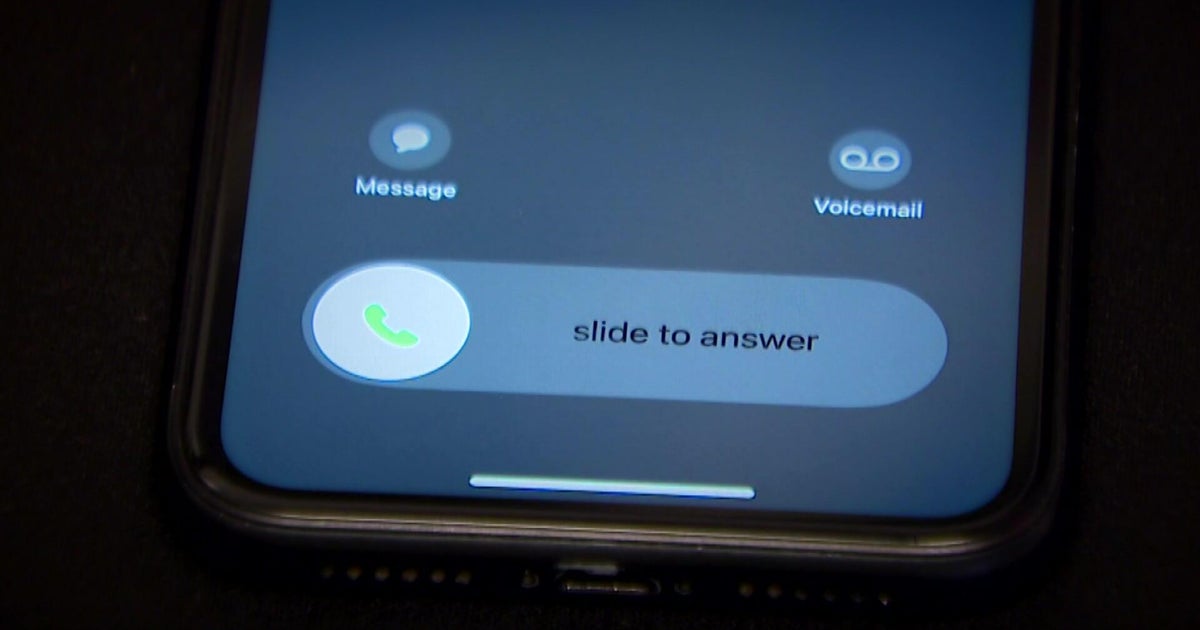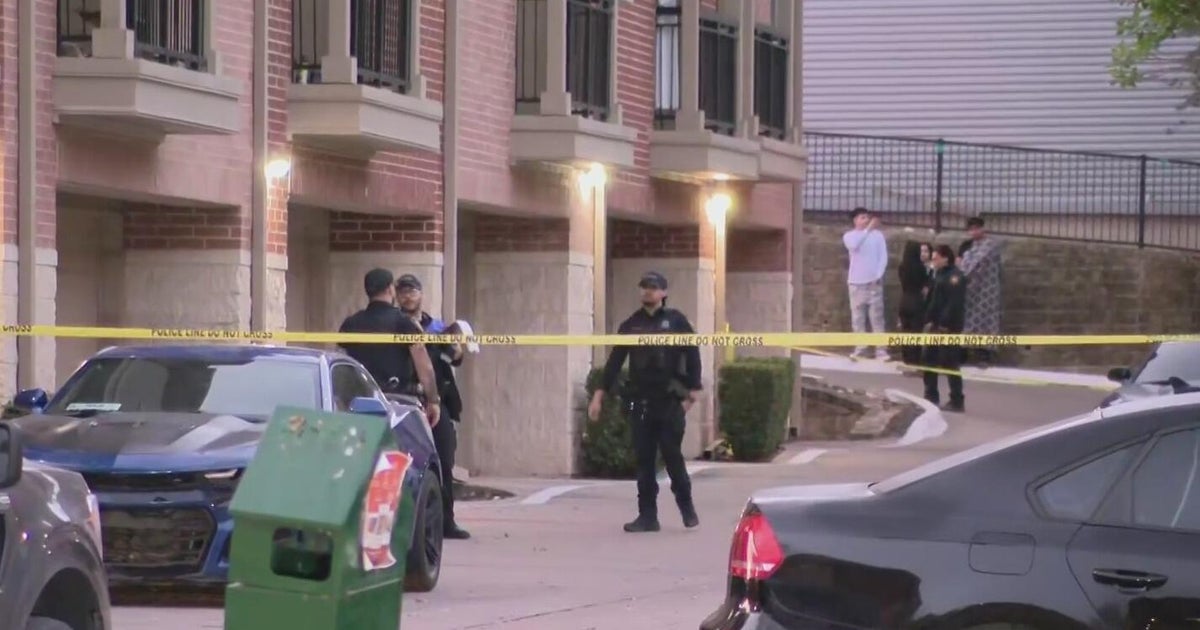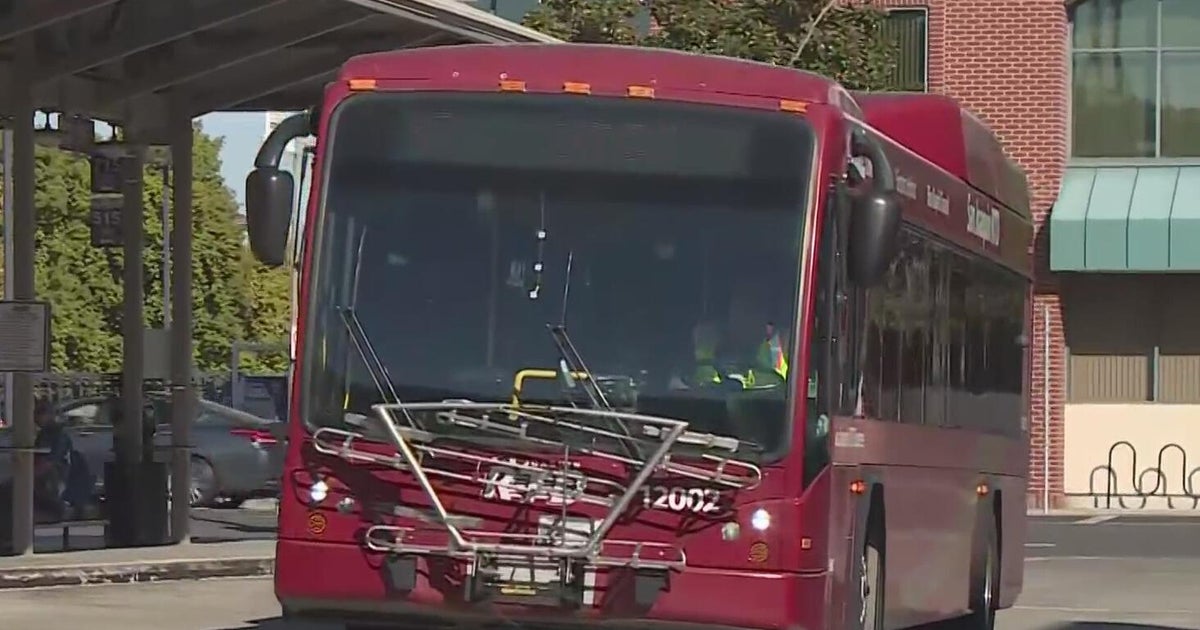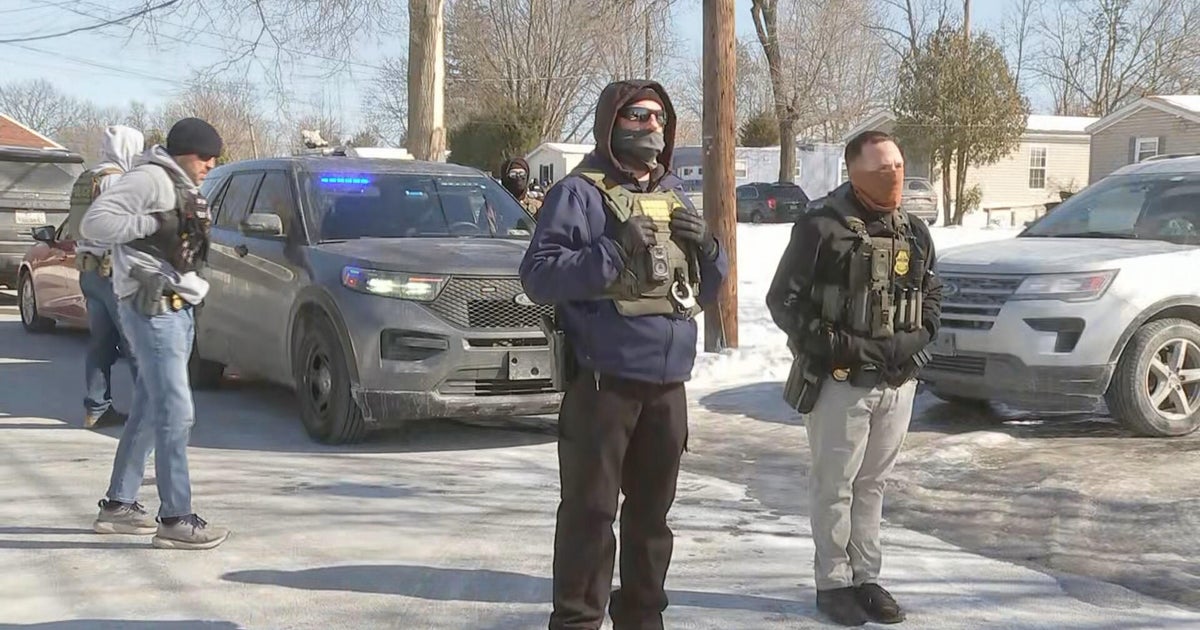Look Out For COVID-19 Scams Related To Tests, Trials And Cures
FORT WORTH (CBSDFW.COM) - Scammers thrive on disruption and there's no shortage of that this year.
Americans have lost nearly $160 million to COVID-19-related scams, according to the Federal Trade Commission.
The FTC is warning people that such scams are on the rise.
"The scammers are often very good at what they do" Reid Tepfer, an attorney at the Federal Trade Commission told the CBS 11 I-Team. "These are old scams that are sort of rebranded to be COVID-type scams."
The agency is warning about a phony COVID-19 clinical trial scheme to get your personal information.
"With the, COVID-19 clinical trials, they'll take a look at what a real website looks like, and they find ways to mimic the website, mimic the brochures and make it look credible," Tepfer said.
A real clinical trial may ask for your age, sex, ethnicity and pre-existing conditions.
It will never ask for your social security number of bank information.
A legit trial may pay you for participating but it won't charge you for enlisting.
The Health and Human Service department also released a video warning consumer about medical labs targeting retirement communities, claiming to offer COVID-19 tests but actually drawing blood and billing federal health care for unnecessary services.
In another scheme, fraudsters offer a $200 Medicare card.
The agency says no such card exists right now.
The I-Team has learned in the last three months, the FDA has sent nearly two dozen letters to companies selling items which claim to prevent, treat or cure COVID-19.
Everything from CBD products to Black seed Oils and even Amniotic Fluid products to at-home stool sample kits.
The FDA says these products have not been researched and are not proven to be safe or effective.
Privacy experts say if you are suspicious of a company, medical test or a product, type in the word "scam" or "complaint" to see what has been reported.
Always file a complaint with the Federal Trade Commission or the Texas Attorney General's Office of if you believe you received a fake text.
Tepfer said it helps the agency determine how to allocate resources when people send in their complaints.
"Without consumers complaining to us, it would be hard for us to do our jobs," he said.
MORE FROM CBSDFW
